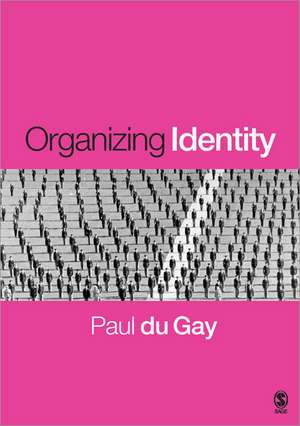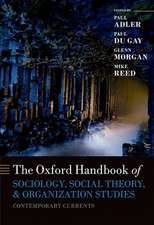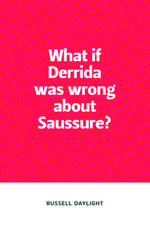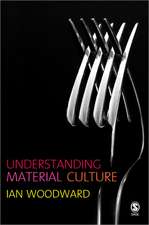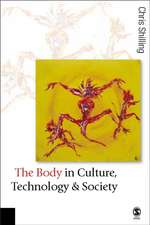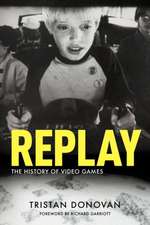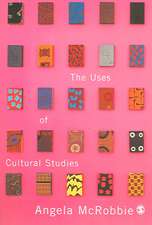Organizing Identity: Persons and Organizations after theory: Culture, Representation and Identity series
Autor Paul du Gayen Limba Engleză Paperback – 25 feb 2007
- Nigel Thrift, Vice-Chancellor, The University of Warwick"I have to say that as usual I find very refreshing Paul du Gay's courageous and unconventional approach, a clarity of vision that I find very appealing."
- Professor Marilyn Strathern, University Of Cambridge
Like many other popular academic terms, ‘identity’ has been asked to do so much work that it has often ended up doing none at all and, as a consequence, there has been a recent turn away from identity work.
In this book, Paul du Gay moves identity theory in a new direction, offering a distinctive approach to studying how persons - human and non human - are put together or assembled: how their ‘identities’ are formed. He does through an engagement with a range of work in the social sciences, humanities and in organization studies which privileges the business of description over metaphysical speculation and epochalist assertion.
At the heart of the book is an approach to the material-cultural making up of ‘persons’ that involves a shift away from general social and cultural accounts concerning the formation of ‘subjectivity’ and ‘identity’ towards an understanding of the specific forms of personhood that individuals acquire through their immersion in and subjection to particular normative and technical regimes of conduct.
The book is written for postgraduate students and researchers interested in debates about identity, subjectivity and personhood in a range of disciplines – especially those in sociology, social anthropology, geography, and organization and management studies.
| Toate formatele și edițiile | Preț | Express |
|---|---|---|
| Paperback (1) | 463.85 lei 6-8 săpt. | |
| SAGE Publications – 25 feb 2007 | 463.85 lei 6-8 săpt. | |
| Hardback (1) | 1114.65 lei 6-8 săpt. | |
| SAGE Publications – 14 feb 2007 | 1114.65 lei 6-8 săpt. |
Preț: 463.85 lei
Nou
Puncte Express: 696
Preț estimativ în valută:
88.76€ • 92.90$ • 73.87£
88.76€ • 92.90$ • 73.87£
Carte tipărită la comandă
Livrare economică 31 martie-14 aprilie
Preluare comenzi: 021 569.72.76
Specificații
ISBN-13: 9781412900126
ISBN-10: 1412900123
Pagini: 208
Dimensiuni: 156 x 234 x 12 mm
Greutate: 0.32 kg
Ediția:First Edition
Editura: SAGE Publications
Colecția Sage Publications Ltd
Seria Culture, Representation and Identity series
Locul publicării:London, United Kingdom
ISBN-10: 1412900123
Pagini: 208
Dimensiuni: 156 x 234 x 12 mm
Greutate: 0.32 kg
Ediția:First Edition
Editura: SAGE Publications
Colecția Sage Publications Ltd
Seria Culture, Representation and Identity series
Locul publicării:London, United Kingdom
Cuprins
Introduction: 'Identity' After 'The Moment of Theory'
The Identity of Persons I
The Identity of Persons II
Which Is the 'Self' in 'Self-Interest'?
'Self-Service'
Retail, Shopping and Personhood
Re-Instating an Ethic of Bureaucratic Office
Office, Ethos and Persona in Public Management
The Tyranny of the Epochal
'Change', Epochalism and Organizational Casuistry
The Trouble with "Governance"
State, Bureaucracy and Freedom
The Identity of Persons I
The Identity of Persons II
Which Is the 'Self' in 'Self-Interest'?
'Self-Service'
Retail, Shopping and Personhood
Re-Instating an Ethic of Bureaucratic Office
Office, Ethos and Persona in Public Management
The Tyranny of the Epochal
'Change', Epochalism and Organizational Casuistry
The Trouble with "Governance"
State, Bureaucracy and Freedom
Notă biografică
Paul du Gay is a Senior Lecturer in Sociology at The Open University
Descriere
This book makes a significant contribution to cultural economic approaches to organizational and economic life. Specifically it offers both a survey of the field, as well as a practical guide to doing 'cultural economy'. The text, which builds upon du Gay's earlier work, will engage with a range of debates from cultural studies, sociology, anthropology, geography, and management. It brings du Gay's style and originality to bear on the subject of culture and economy, and results in a book that will once more make a solid contribution to cultural studies.
